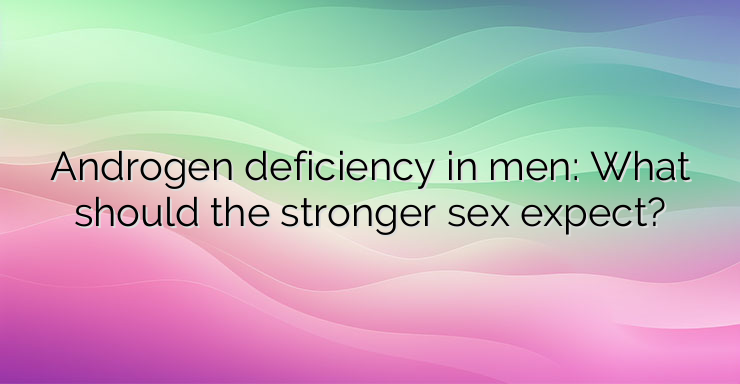Androgens, including testosterone, are the hormones that give men their “masculine” characteristics. Androgen deficiency means that the body has lower levels of male sex hormones, especially testosterone, than is necessary for good health. This deficiency can be caused by problems in the areas of the brain that control testicular function (pituitary gland and hypothalamus) or by problems in the testicles themselves. The term “male menopause” is incorrect because there is no such thing. There is no sudden, severe, or inevitable drop in sex hormone production in men as seen in women. A gradual and smooth decline in the levels of male sex hormones is observed after the age of 30, but this decrease in levels does not occur in all men. In most cases, the decline in androgens is caused by a co-morbidity. Hormones can be thought of as chemical messages that control processes in the body and can lead to various changes. They are necessary for various processes such as growth, reproduction and good health. Androgens are critical to male sexual and reproductive function. They are also responsible for the development of secondary sexual characteristics in males, including the growth and development of facial and body hair, as well as changes in voice. Androgens affect bone, muscle and metabolism development. The effects of androgen deficiency depend on the severity of the deficiency, its cause and age. When not enough androgen hormones are circulating in the body, the manifestations can be the cause of a wide range of symptoms. However, a number of these symptoms can be non-specific and mimic symptoms of other diseases and conditions. These include decreased sex drive, hot flashes and sweating, gynecomastia, lethargy and fatigue, depression, decreased muscle mass and strength, increased body fat especially around the abdomen, decreased ejaculate, loss of body hair, and decreased bone mass. A number of factors can cause testosterone levels to decline with age. In particular, any cause of poor general health, including obesity, will lower testosterone levels. Recent research shows that testosterone levels do not drop significantly in healthy older men. The effect of declining testosterone levels in older men is not yet fully understood. There is a lot of talk on the internet about “andropause” or “male menopause”, suggesting that many older men would benefit from testosterone treatment. However, there is limited evidence to suggest a benefit and the risks are unclear. A recent study of the effects of testosterone treatment in older men showed a slight increase in sexual function with testosterone treatment (in some cases for less than 12 months), but no significant improvement in mood, vitality, or physical function.Starting treatment with testosterone is not recommended without a careful diagnosis of androgen deficiency. Every patient should be completely confident in the health assessment. The effect of lower testosterone levels with increasing age and the effects of testosterone replacement therapy in men are currently being investigated. Of concern are some studies suggesting an increase in cardiovascular disease after starting testosterone therapy in older men, but this remains controversial.


Leave a Reply